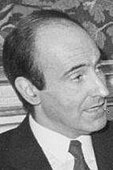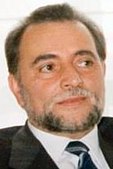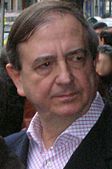
Back Eleccions generals espanyoles de 1989 Catalan Parlamentswahl in Spanien 1989 German Elecciones generales de España de 1989 Spanish 1989ko Espainiako hauteskunde orokorrak Basque Élections générales espagnoles de 1989 French Eleccións xerais de España de 1989 Galician Elezioni generali in Spagna del 1989 Italian 1989年スペイン総選挙 Japanese Wybory parlamentarne w Hiszpanii w 1989 roku Polish Eleições gerais na Espanha em 1989 Portuguese
| |||||||||||||||||||||||||||||||||||||||||||||||||||||||||||||||||||||||||||||||||||||||||||||
All 350 seats in the Congress of Deputies and 208 (of 254) seats in the Senate 176[b] seats needed for a majority in the Congress of Deputies | |||||||||||||||||||||||||||||||||||||||||||||||||||||||||||||||||||||||||||||||||||||||||||||
|---|---|---|---|---|---|---|---|---|---|---|---|---|---|---|---|---|---|---|---|---|---|---|---|---|---|---|---|---|---|---|---|---|---|---|---|---|---|---|---|---|---|---|---|---|---|---|---|---|---|---|---|---|---|---|---|---|---|---|---|---|---|---|---|---|---|---|---|---|---|---|---|---|---|---|---|---|---|---|---|---|---|---|---|---|---|---|---|---|---|---|---|---|---|
| Opinion polls | |||||||||||||||||||||||||||||||||||||||||||||||||||||||||||||||||||||||||||||||||||||||||||||
| Registered | 29,604,055 | ||||||||||||||||||||||||||||||||||||||||||||||||||||||||||||||||||||||||||||||||||||||||||||
| Turnout | 20,646,365 (69.7%) | ||||||||||||||||||||||||||||||||||||||||||||||||||||||||||||||||||||||||||||||||||||||||||||
| |||||||||||||||||||||||||||||||||||||||||||||||||||||||||||||||||||||||||||||||||||||||||||||
 Election results by Congress of Deputies constituency | |||||||||||||||||||||||||||||||||||||||||||||||||||||||||||||||||||||||||||||||||||||||||||||
| |||||||||||||||||||||||||||||||||||||||||||||||||||||||||||||||||||||||||||||||||||||||||||||
The 1989 Spanish general election was held on Sunday, 29 October 1989,[a] to elect the 4th Cortes Generales of the Kingdom of Spain. All 350 seats in the Congress of Deputies were up for election, as well as 208 of 254 seats in the Senate. An election had not been due until 28 July 1990 at latest,[d] but Prime Minister Felipe González called for a snap election nine months ahead of schedule, allegedly on the need of implementing tough economic measures.[1] González hoped to capitalize on a still strong economy and his party's electoral success in a European Parliament election held in June, after a troubled legislature which had seen an increase of social protest on his government's economic policy and the calling of a massive general strike in 1988.[2]
The election was regarded as one of the most controversial in the democratic history of Spain. Close results in many constituencies, coupled with severe flaws in electoral register data, an inefficient structure of the electoral administration and the ongoing political struggle between the ruling Spanish Socialist Workers' Party (PSOE) and the opposition parties over the Socialist absolute majority in the Congress of Deputies, led to a major scandal when election results in a number of constituencies were contested under accusations of irregularities and fraud.[3] Judicial courts were forced to intervene, determining by-elections for Murcia, Pontevedra and Melilla. The issue was appealed to the Constitutional Court of Spain, which overruled previous rulings and validated the vote in Melilla only, with a new election being held on 25 March 1990.[4] In the end, the disputed seat was won by the People's Party (PP), depriving the PSOE of its 176th seat in Congress–and with it, the outright majority it had held since 1982.[5]
The election saw an erosion in popular support for the incumbent Socialists, who nonetheless emerged again as the largest party by a decisive margin, with 68 more seats than the PP. As a result, Felipe González was able to be re-elected for a third consecutive term in office with confidence and supply support from the Canarian Independent Groups (AIC). The newly amalgamated PP, led into the election by José María Aznar, exceeded initial expectations and slightly improved on the People's Coalition 1986 result while performing better than in the June European Parliament election.[6] Julio Anguita's left-wing coalition, United Left (IU), scored a remarkable success by doubling its 1986 totals, whereas Adolfo Suárez's Democratic and Social Centre (CDS) fell short of its goal of becoming a government alternative and lost votes and seats.[7][8]
Cite error: There are <ref group=lower-alpha> tags or {{efn}} templates on this page, but the references will not show without a {{reflist|group=lower-alpha}} template or {{notelist}} template (see the help page).
- ^ "Zapatero anuncia el séptimo adelanto electoral en democracia". El País (in Spanish). Madrid. 29 July 2011. Retrieved 10 July 2017.
- ^ Cite error: The named reference
1988Strikewas invoked but never defined (see the help page). - ^ Prieto, Joaquín (17 December 1989). "Crisis de la Administración electoral". El País (in Spanish). Madrid. Retrieved 9 July 2017.
- ^ Cite error: The named reference
Melilla1was invoked but never defined (see the help page). - ^ Cite error: The named reference
Melilla2was invoked but never defined (see the help page). - ^ González Ibáñez, Juan (30 October 1989). "Aznar, safisfecho por haber roto el techo electoral de la derecha conservadora". El País (in Spanish). Madrid. Retrieved 9 July 2017.
- ^ Mauri, Luis (30 October 1989). "Julio Anguita destaca el desplazamiento del electorado hacia la izquierda". El País (in Spanish). Madrid. Retrieved 9 July 2017.
- ^ "Adolfo Suarez reconoce que no ha obtenido los resultados que esperaba". El País (in Spanish). Madrid. 30 October 1989. Retrieved 9 July 2017.
© MMXXIII Rich X Search. We shall prevail. All rights reserved. Rich X Search





